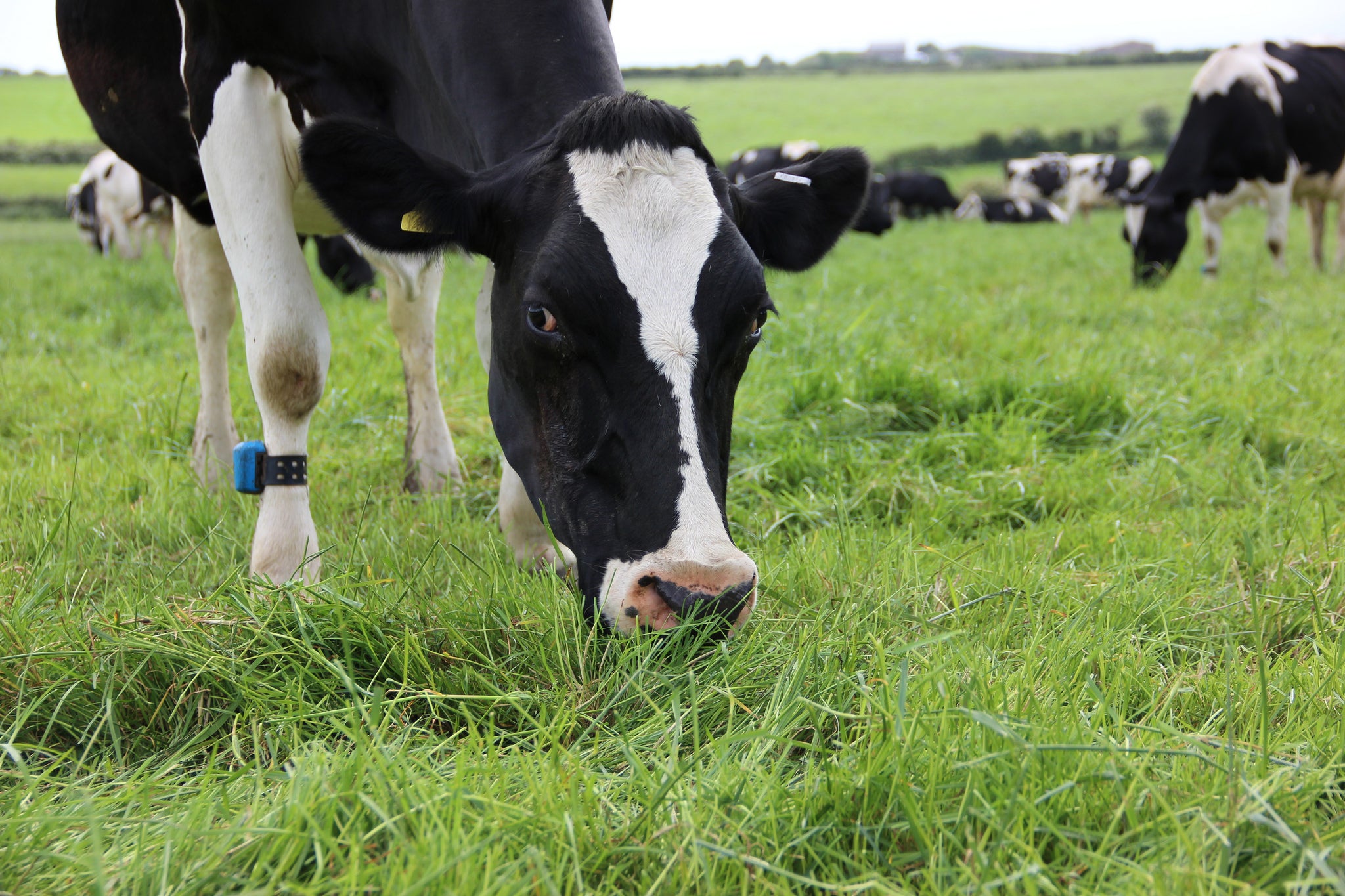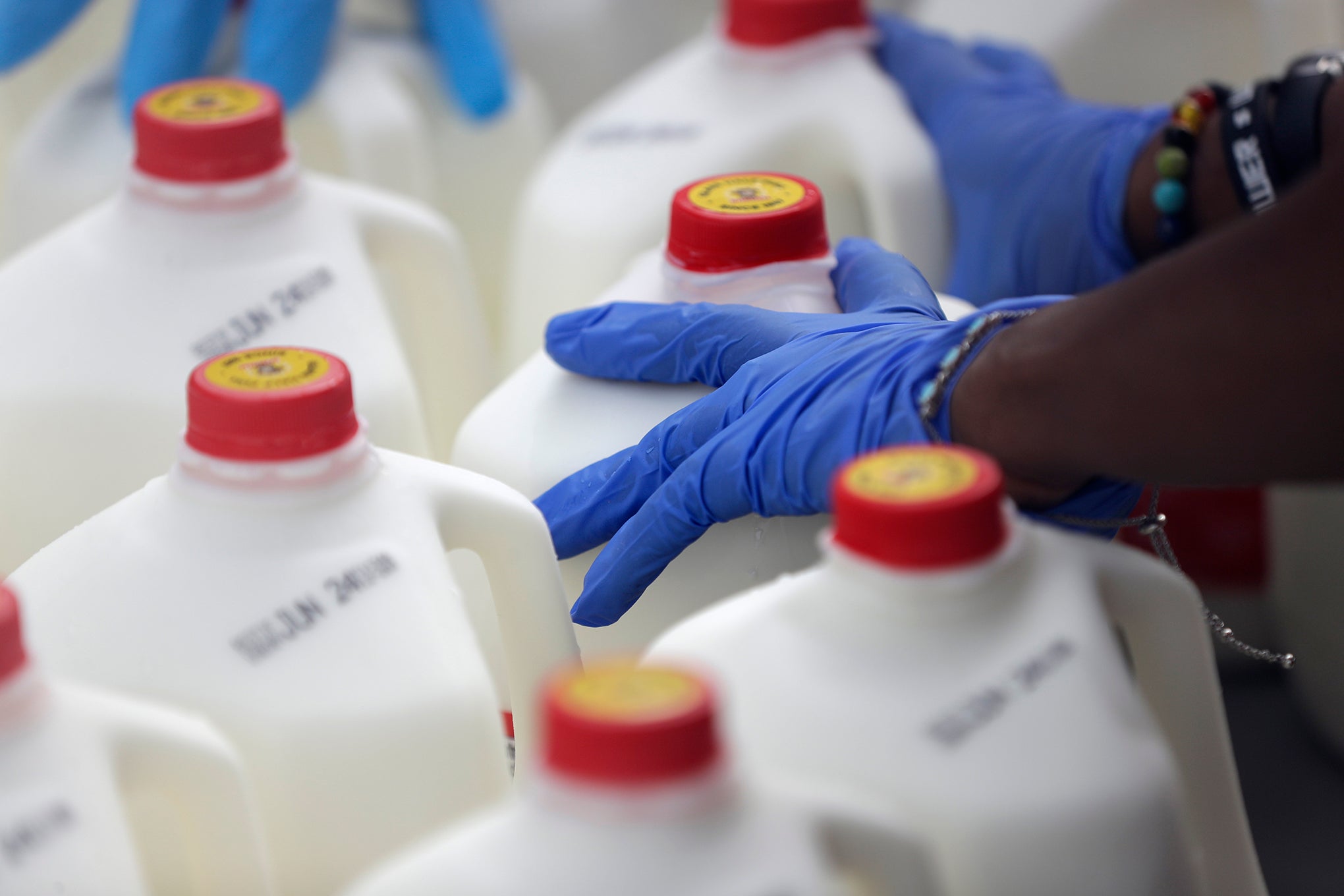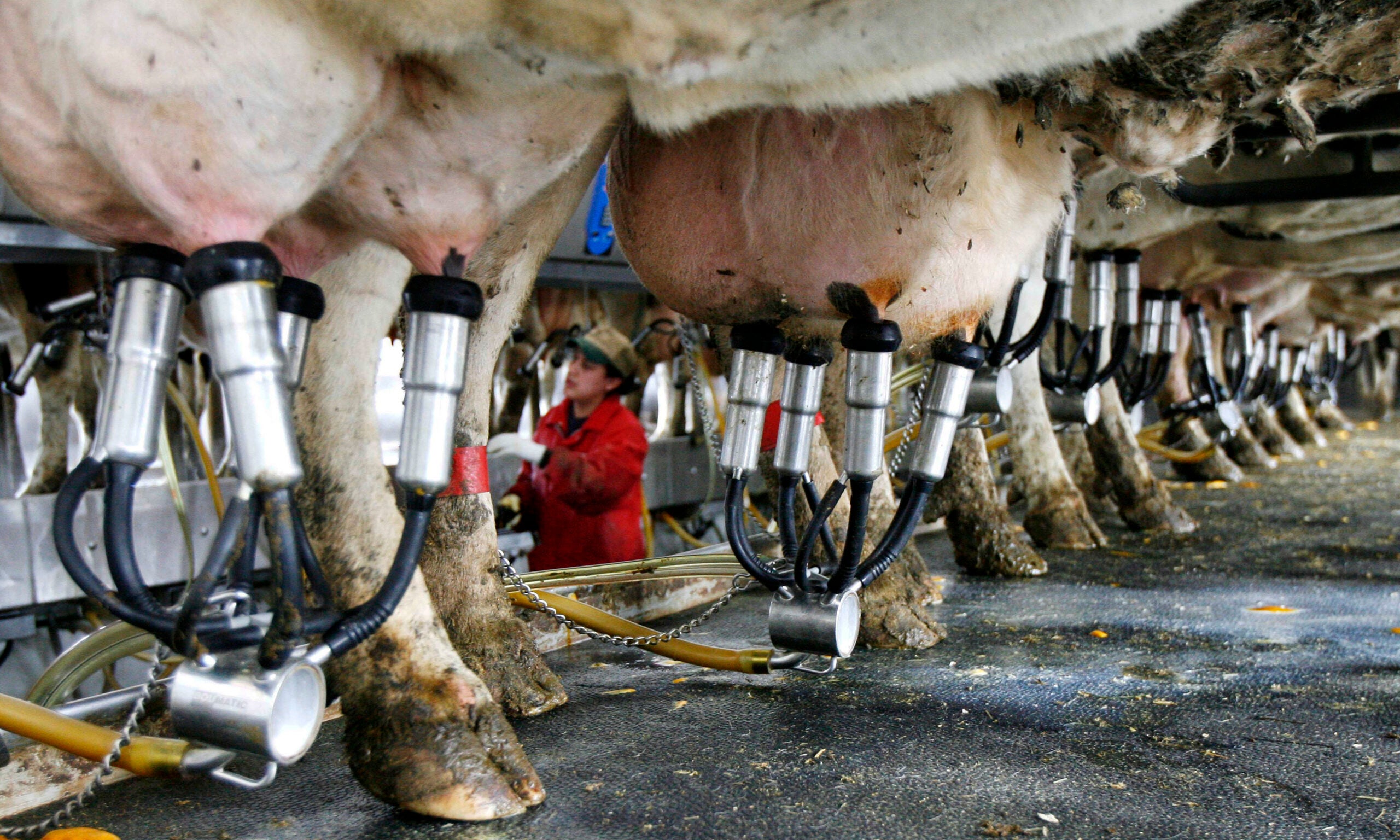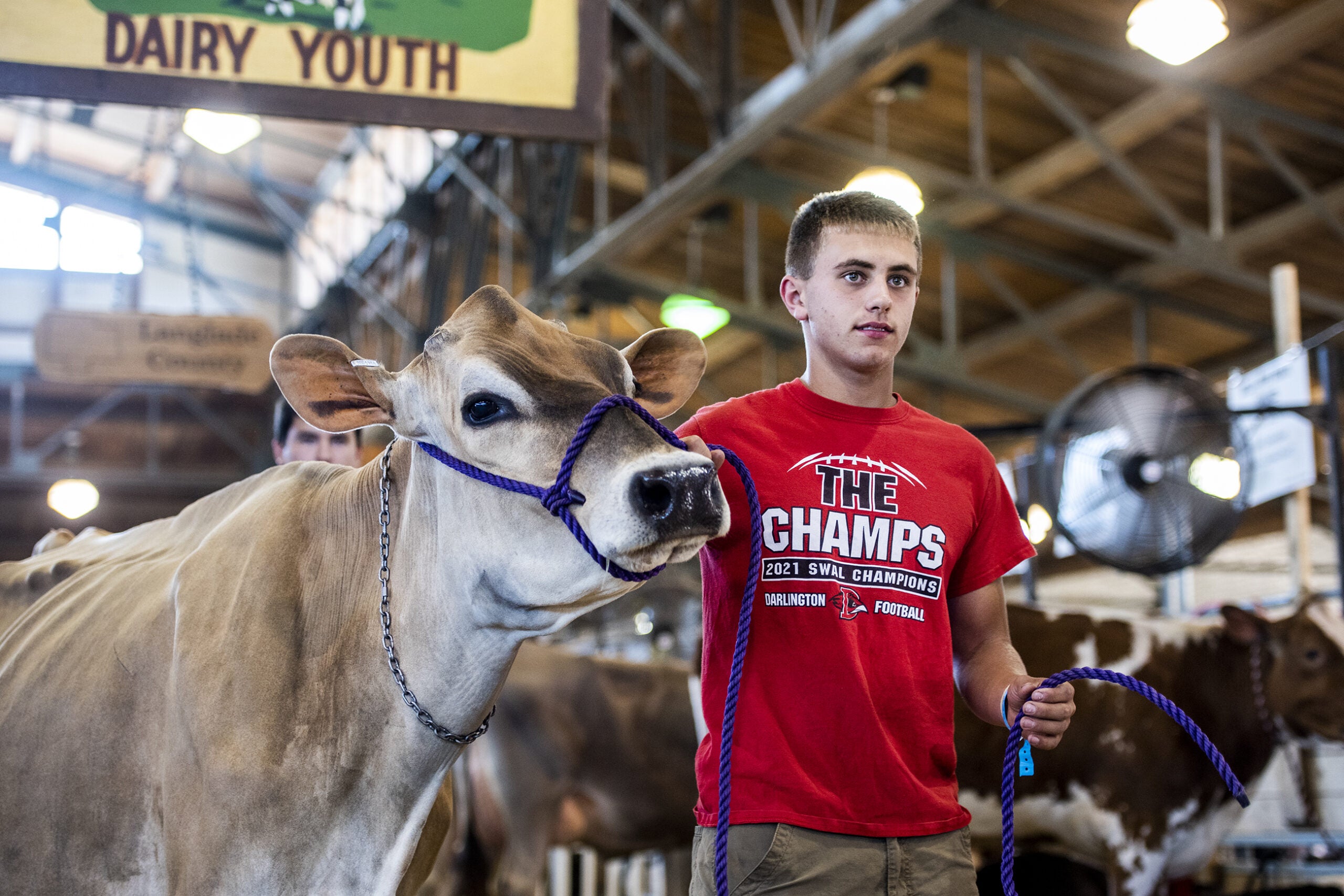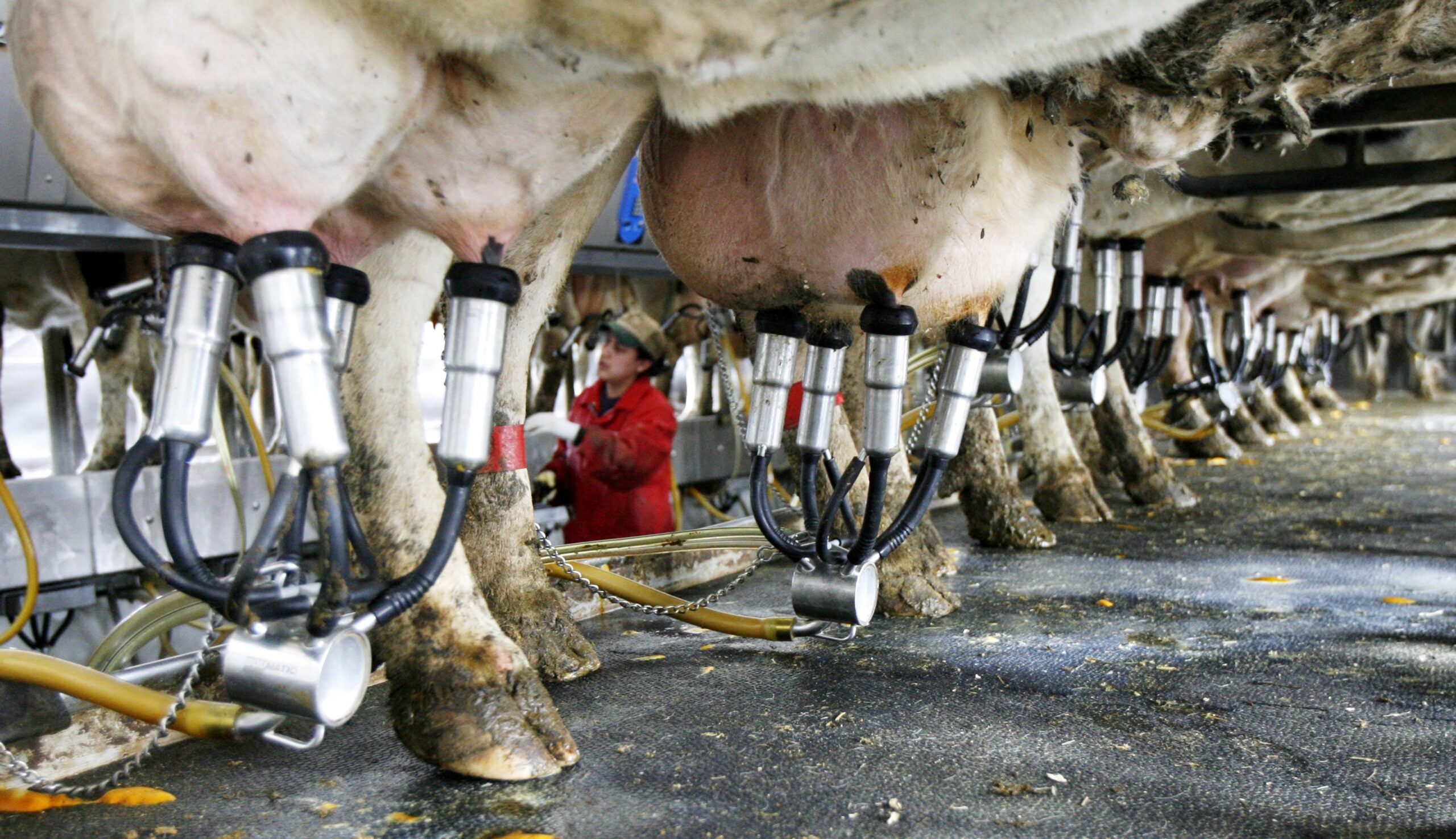New research from the University of Wisconsin-Madison could help dairy cows produce more calcium-rich milk.
Dr. Laura Hernandez, an assistant professor of lactation biology, found Jersey cows produced milk with higher calcium after they were given injections to increase serotonin, a chemical tied to feeling happy.
Serotonin regulates calcium in a cow’s mammary glands, so it’s not their mood that is increasing calcium levels. But increased calcium could make dairy cows happy for other reasons.
Stay informed on the latest news
Sign up for WPR’s email newsletter.
“When (cows) have low calcium, they’ll get things like ketosis or they’ll have uterine infections or have a hard time getting pregnant,” Hernandez said.
Hernandez found serotonin increased calcium levels in Holstein cows’ blood and that increased calcium levels could help dairy cows bounce back sooner from low calcium levels after giving birth.
“If we can help mitigate some of these effects, we could boost the longevity of the cows in the herd and also have them be more reproductive,” Hernandez said.
Calcium is the major mineral gained from drinking milk, and it’s important in the process of making cheese. But the new research could also have implications for human calcium levels, she said.
When breastfeeding, women can lose up to 10 percent of bone mass from the amount of calcium used for milk production. An overload of serotonin could take away too much calcium from a woman’s bones, making them more prone to fracture, Hernandez said.
“If women are taking antidepressants, or selective serotonin reuptake inhibitors, while they’re pregnant and lactating (and this is becoming more common with depression during the perinatal period), maybe that is too much serotonin,” Hernandez said.
Wisconsin Public Radio, © Copyright 2025, Board of Regents of the University of Wisconsin System and Wisconsin Educational Communications Board.
